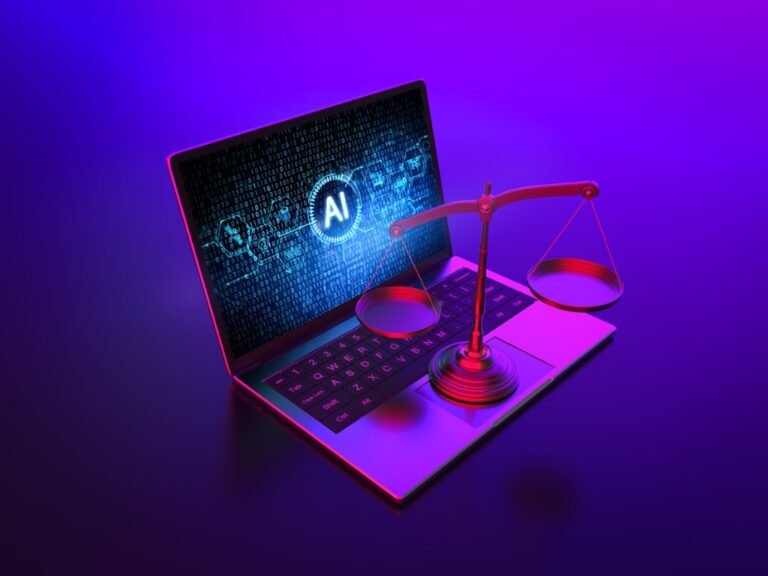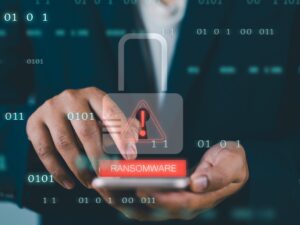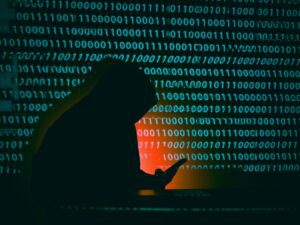AI and Copyright: Preparing Your Business for the Next Wave of Litigation
By Susan Jackson
March 26, 2024

Susan Jackson is a partner at Nelson Mullins Riley & Scarborough LLP. She leads the firm’s Charlotte office and her practice focuses on patents, trademarks, copyrights and unfair competition, as well as counseling, licensing and opinion work.
Published in Today’s General Counsel, April/May 2024
With the growth of artificial intelligence (AI), copyright registration is more important than ever. Copyright infringement will be the next big wave of intellectual property (IP) litigation over the coming years. Businesses need to prepare now to protect their IP rights in the future.
Most businesses have some form of copyrightable content that provides a competitive advantage and is worthy of protection. Copyright protectable works of authorship include, for example, literary, dramatic, musical and artistic works. Many copyrightable works are present online, such as on a company’s website, in published online articles, on social media platforms and in the form of computer software.
AI poses a threat to original works of authorship by using machine learning algorithms and data extraction methods to pull data and content from websites. Artificial intelligence takes traditional methods of screen scraping to a new level of sophistication. As AI becomes more prevalent, easy to use and accessible than other known web scraping methods, the risk of infringement of copyrightable works is heightened. AI can web scrape text, still images and videos from a company’s online publication and marketing materials.
Currently, there are a number of recently filed copyright infringement lawsuits alleging the use of copyrighted works to train AI technologies, including a lawsuit brought by The New York Times against OpenAI and Microsoft. In this December 2023 case, the New York Times alleges that the defendants used their content without permission to develop their AI models and tools.
The importance of copyright registration
An owner of a copyrighted work cannot sue for copyright infringement in a U.S. federal court without first having a federal copyright registration. In March 2019, the U.S. Supreme Court held in Fourth Estate Public Benefit Corp. v. Wall-Street.com, LLC et al., that a copyright claimant may commence a copyright infringement suit when the U.S. Copyright Office registers a copyright, as opposed to when an applicant files a copyright application. Thus, a time lag exists between filing a copyright application and obtaining a registration certificate.
It can be significantly more expensive if you need to file a request to expedite the examination of a copyright application at the U.S. Copyright Office in order to file a federal lawsuit. As an example, the current U.S. Copyright Office government fee for special handling to expedite registration of a copyright claim in an original work of authorship is approximately 12 times the standard government fee for filing an application electronically and must be paid in addition to the standard government copyright application filing fee.
Steps companies can take to prevent copyright infringement include:
- Take inventory of your copyrightable works — software, videos, literary works, artwork and/or photographs.
- Determine what content of your business provides a competitive advantage and what content is most commercially valuable.
- Identify whether your business has license agreements in place such that copying the licensed content could result in the loss of a royalty stream or give rise to an enforcement obligation in a contract.
- Ask yourself what content draws consumers to your products and services and is most closely identified with your business such that you would not want a customer to be drawn to another source or website.
Additionally, businesses can proactively file federal copyright applications, as the duration of a federal copyright is relatively long compared to other forms of intellectual property. For works created after Jan. 1, 1978, copyright protection generally lasts for the life of the author plus an additional 70 years. For an anonymous work, pseudonymous work or work made for hire, the copyright has a term of 95 years from the year of its first publication or 120 years from the year of its creation, whichever expires first. So, there is generally minimal downside to filing a copyright application ahead of an actual infringement situation, as the cost of filing a U.S. copyright registration is relatively modest. Businesses should file copyright applications early and often.
In conclusion, a business should build its arsenal of copyright registrations now, as AI poses an increasing threat of infringement to original works of authorship having an online presence. To pursue enforcement of a copyrightable work in a federal court, copyright owners will need a federal copyright registration. Businesses are encouraged to prepare now, enabling them to respond expeditiously should a copyright infringement occur.
Must read intelligence for general counsel
Subscribe to the Daily Updates newsletter to be at the forefront of best practices and the latest legal news.
Daily Updates
Sign up for our free daily newsletter for the latest news and business legal developments.




